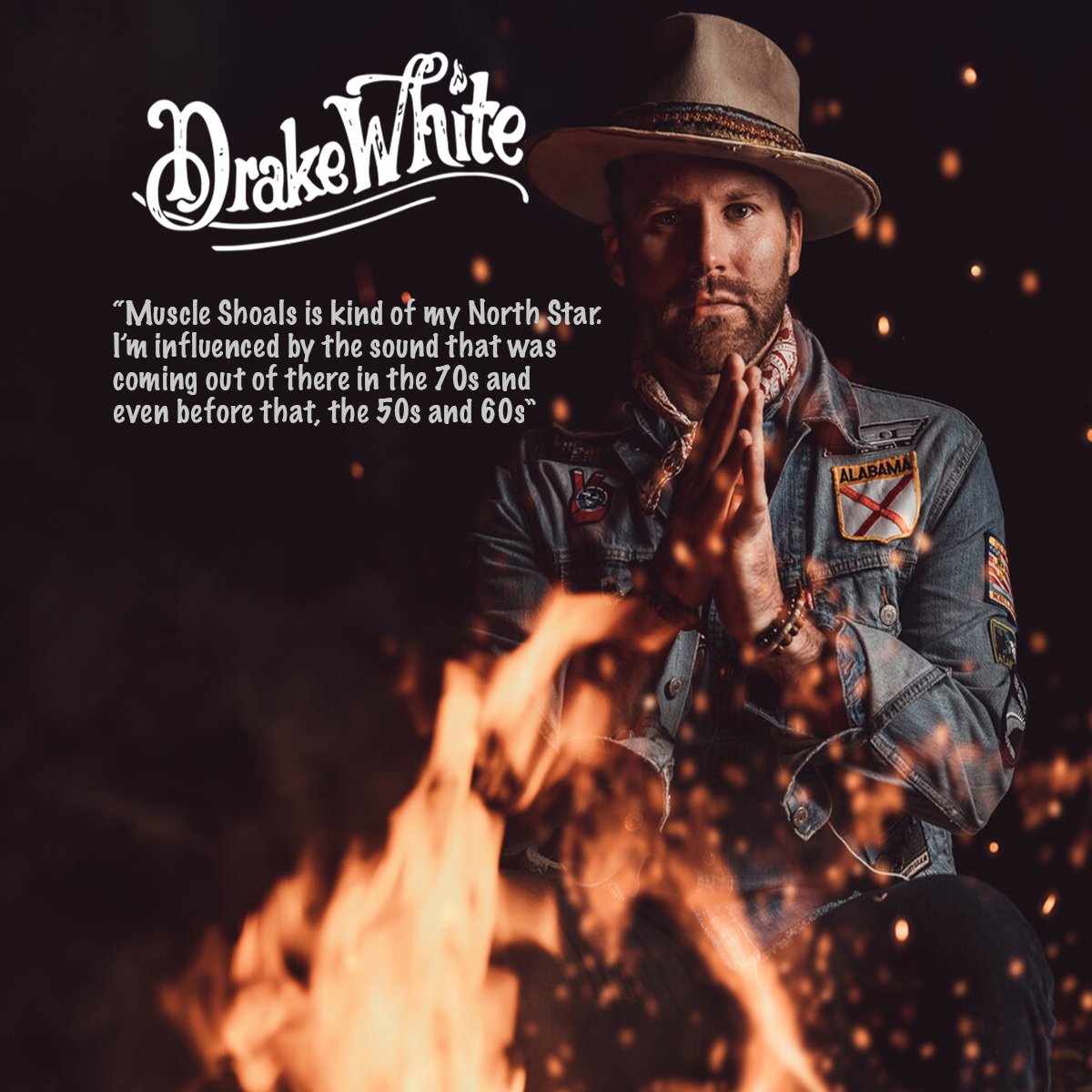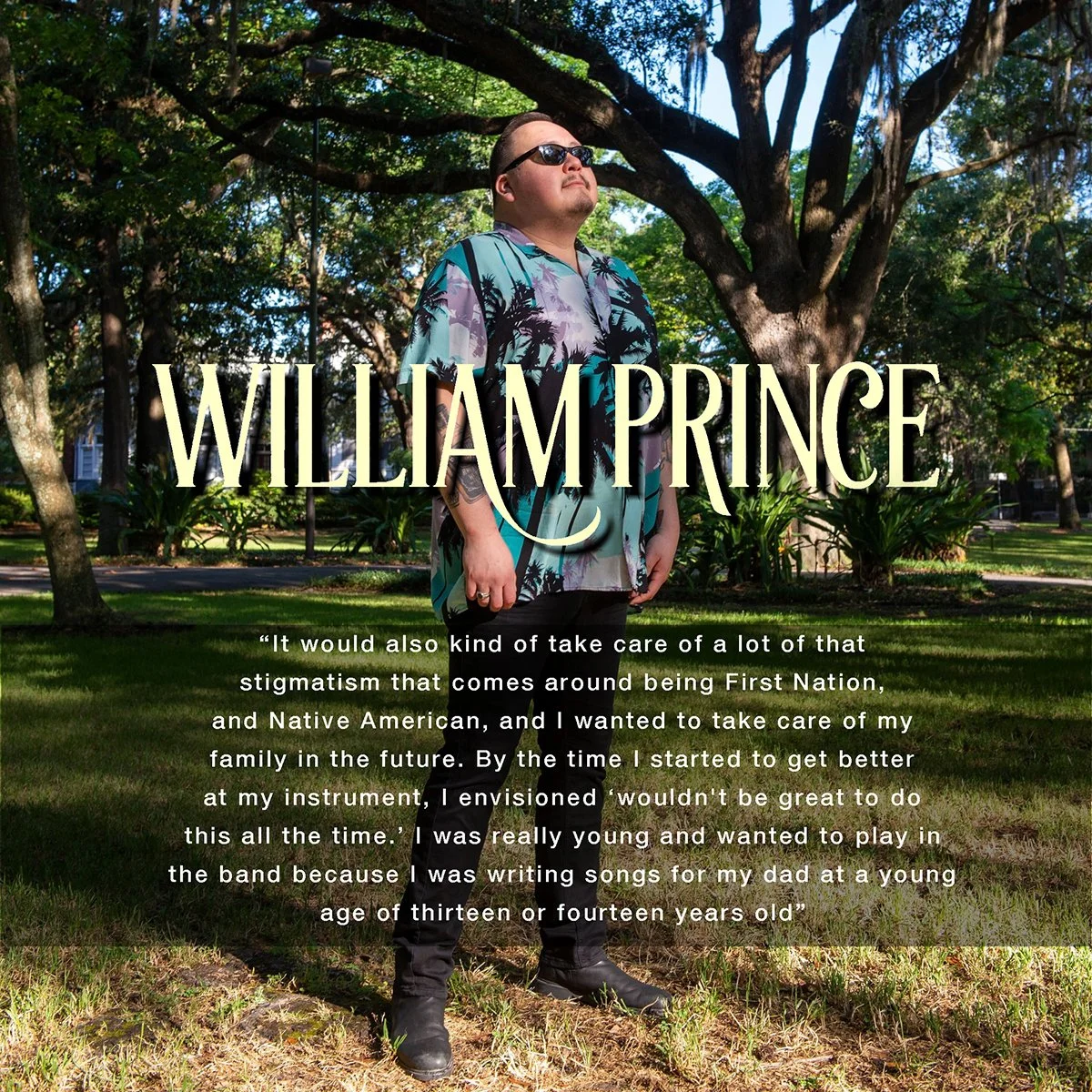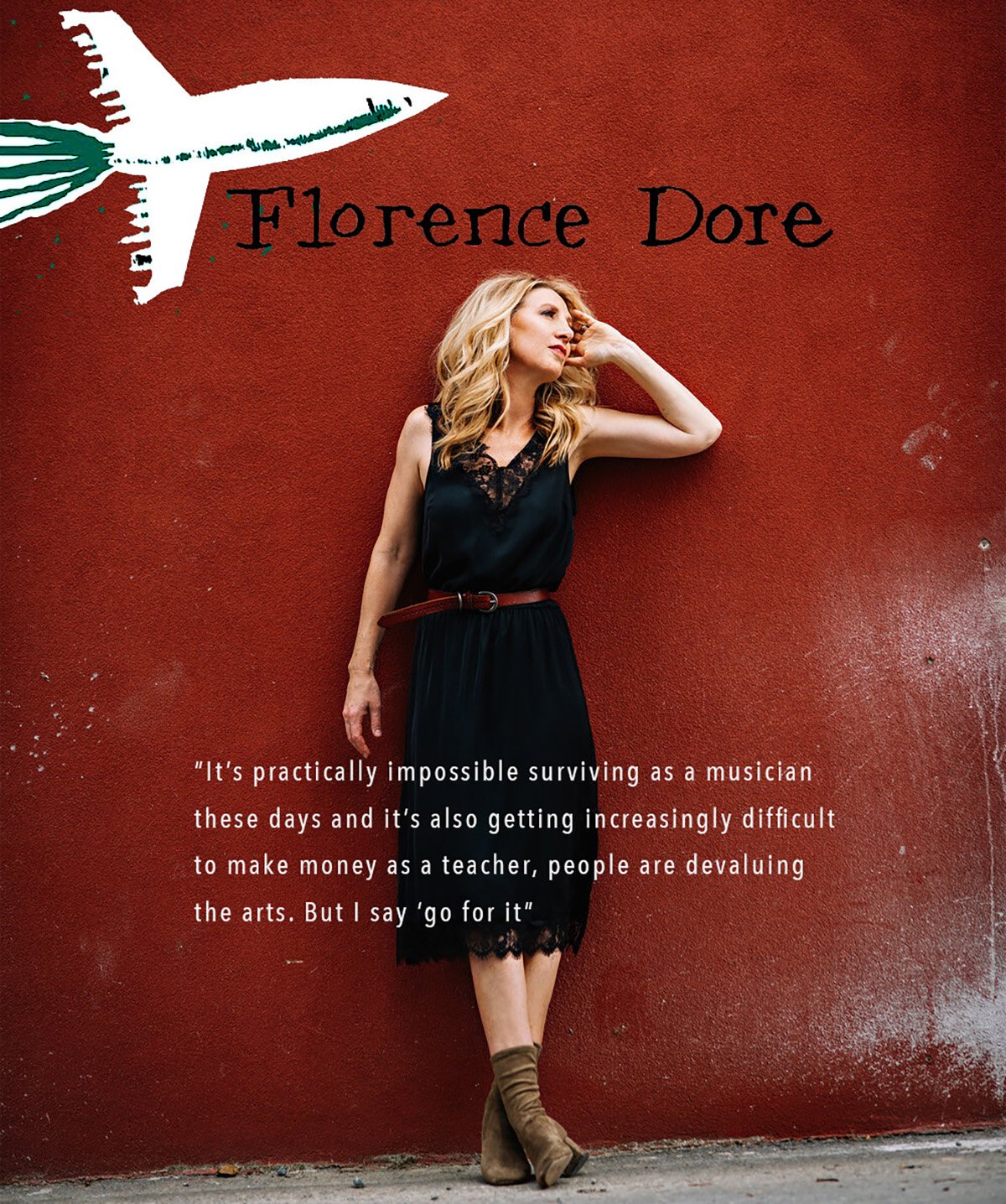Collapsing on stage due to a hemorrhagic stroke in 2019 could have proved fatal to the Hokes Bluff, Alabama-born country singer Drake White. Fortunately, the collapse occurred five minutes from a Level 1 Trauma Unit, which effectively saved his life. His latest album, THE OPTIMYST, co-produced with Cadillac Three frontman Jaren Johnston, was born out of his recovery and rehabilitation. We caught up with Drake in Nashville, prior to his scheduled trip to Europe to play The Black Deer Festival in the UK, together with shows in Dublin and Belfast.
Did you have previous health issues related to your collapse on stage?
Yeah, I was battling what is called an AVM or arteriovenous malformation. It was something that I was born with and I wasn't aware of it until I got a really bad headache and got an MRI. I was in good shape and I felt really good, but there was a very, very slim chance of what happened to me actually happening, a two percent chance. But it did and I'm lucky to be alive. But it's just part of my story. It gives me an opportunity to have the authority to talk through resilience and talk through this chapter of mine and show people that you can keep going as long as you have hope and as long as you have desire.
Did the stroke have an effect on your speech?
Luckily, it affected the mobile cortex of my right side, it didn't affect my speech or cognitive ability, which is a huge blessing. So, it actually felt similar to how a blind man may hear better than most other people, it helped me concentrate more on my writing. Taking the guitar out of my hand, I wrote songs in a very different way. With no guitar and just maybe a melody in my head, one thing led to another and I ended up with a full album of songs. We worked hard to push through the release of the album independently against all odds, with the pandemic, me getting back on my feet and learning how to walk again. We kept writing and kept playing in our barn, and that's the record that you're hearing right now.
Were you surrounded by music growing up?
Yes, I grew up in North Alabama, just south of Tennessee. My grandfather was a preacher, so gospel music, bluegrass, storytelling and folk music were ingrained in me and part of my growing up. I was getting music from all directions. My dad listened to classic rock, my mom listened to modern pop and rock music, and she will now also listen to classic country, while my grandfather listened to soul music. So, music kind of hit me from all directions and I kind of mixed it all up in a pot.
How big an influence was the music coming out of nearby Muscle Shoals?
Muscle Shoals is kind of my North Star. I’m influenced by the sound that was coming out of there in the 70s and even before that, the 50s and 60s. I consider myself an old soul and that sound coming out of Muscle Shoals is something that that I still really sonically gravitate towards today. They built this cinderblock studio in this little town, the stars and the moon aligned, and it just became the right spot. Everyone from Aretha Franklin to The Rolling Stones came and recorded there, writing and creating great music. There's a magic to it and I was very lucky to grow up around there.
Tell me about your approach to writing the songs for THE OPTIMYSTIC and some of the co-writers you worked with.
There's never any rhyme or reason to what I do. I have been here in Nashville since 2007 and I have a lot of relationships with people who are very successful writers. Some of them are writers that a lot of people don't know about, people like Kelly Johnson, who has four co-writes on the record. She moved here from Alabama with a bluegrass band called Distant Cousins when she was forty. Jonathan Singleton and Randy Montana are on the album, and Allison Veltz Cruz, who everybody knows about. Nashville is like Florence in Italy, the melting pot of art and diversification. You’ve got to be here if you're a songwriter. You can write songs in different parts of the world but the best songwriters in the world, in my opinion, are here. That's what this town offers you, that inspiration. I'll probably write a song this afternoon.
You then got Cadillac Three frontman, Jaren Johnston, on board to co-produce the album with you.
Yes, Jaren and I have been friends forever. We've had many beers together, many whiskies, and many late nights. It was something that we wanted to do for a while. I tried a couple of other well-known producers but I just wanted to make the music that I wanted to make, not what a producer wanted to make. Jaren and me are cut from the same cloth, we both like the gritty storytelling type of thing.
You had the songs and the producer in hand. How did the recording process develop from there? Did you call up musicians that you played with previously?
Like with Jaren, the musicians were people that I really like playing with and people that I had nurtured relationships with. I just went into the studio, closed my eyes and explained that I’m a kid from the South of Alabama, south of Muscle Shoals, and I’m in that triangle of Muscle Shoals and New Orleans, so let’s play with that character of soul, pop and blues. I just told them what I was going for and to play like you’re in my band and not playing for yourselves.
What’s the background to the song Fifty Years Too Late?
That song has been around for over twelve years. I wrote it in my kitchen when I first moved to Nashville. I’ve always been an ‘old soul’ since I was a kid. My grandfather said to me a long time ago ‘you were born fifty years too late.’ I was always worried about the weather, concerned about crops, wondering if the fish were going to bite, and hanging out with old people. I’ve also always liked old music and old things; I’ve got a 1969 Bronco at the house right now. That’s where that song came from.
Given what you’ve come through it’s not difficult to surmise who the song Angel Side of You is directed towards.
My wife is extremely humble. She taught me how to walk again by duct-taping her leg to my leg and she has this unbelievable ability to nurture and I needed that. So, yes, Angel Side Of You is all about her.
The album’s strongest song, for me, is Hurts The Healing.
It's one of the most important songs that I've ever written. It’s about struggle and an honest take on what I was going through, I was struggling really hard. It was one of those songs that I needed. I wrote it on a Zoom with Allison Veltz Cruz and Aaron Chafin. Aaron started a conversation about how his mom and dad had had a car wreck that landed them in intensive care for eight months. What most folks didn’t know was that they had been on the brink of a divorce and they had been in a dispute in the car when the accident happened. They landed in hospital beds side by side and now they’ve been married thirty-five years and they’ve got five kids. After that story, Aaron told me that he’s been watching me limping across the stage, not being able to play guitar. I just thought that maybe the hurt and the pain is the healing and that you have to go through pain to heal and grow. That song sums up the last three or four years and it’s special for me.
Would you have written as strong an album without the rehabilitation that you've gone through?
I don’t think so. The reason that Aretha Franklin wrote so well is because of the struggles she went through, the blues are the blues because of the struggle. Good music comes from when you're vulnerable.
You’re due over in Europe to tour with your band later this month. How has The Optimystic tour been going for you in The States?
We've been touring the album for the better part of a year and it has been extremely successful in building things back up. We're selling more tickets over in the UK and in Ireland now than we ever have. We're playing for bigger crowds and bigger rooms. It's working. I don't write stuff for necessarily commercial success. I write stuff that I want to get out there, that I want to put out there and it’s great to see that it also resonates with folks and friends over in your neck of the woods.
Interview by Declan Culliton






















